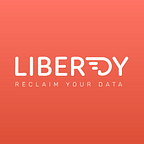The GDPR Has Taken Effect! Is the Fight Over? Did We Win?
The GDPR, General Data Protection Regulation, took effect on Friday to the great satisfaction of data privacy supporters, a sentiment that was clearly reflected in a triumphant tweet from the European Commission:
Today, our EU #DataProtection rules enter into application, putting the Europeans back in control of their data.
Europe asserts its digital sovereignty and gets ready for the digital age.
Read our statement → http://europa.eu/!Vh78YU #GDPR
So, what has changed?
The new EU privacy legislation identifies users are the rightful owners of their personal information and all online businesses harvesting user data must make a digital copy accessible to data subjects, gain their consent for its use and enable them to delete their data. They must also have a lawful basis for processing the data and if not, face significant fines. These companies must also abide by stricter regulation regarding the secure handling of user data and inform their users, and supervisory authorities of any breach within 72 hours.
This is quite a coup. The EU Members of Parliament driving this data protection regulation have succeeded in fulfilling their promises to their constituents to limit the power of online tech companies and place control over personal information back in the hands of users.
Up to now, companies like Google and Facebook have been allowed to run riot, displaying a reckless disregard for user privacy. However, since the new regulation took effect on Friday morning, before the weekend even began, complaints were filed against Facebook, WhatsApp, Instagram and Google, claiming that these tech giants were forcing users to give their permission for wide-ranging data collection and targeted advertising, in exchange for using the companies’ services. Since the breadth of the data gathered on users extends beyond what is necessary to provide their services, and since that data is then being sold on, or used for interest-based advertising, free opt-in consent is required. If following an investigation, the complaints are upheld this could entail huge fines and require a complete overhaul of these companies’ operating procedures.
Is that it then? Is the battle over?
The answer is a little more complex than a simple yes or no. The GDPR is a great start in terms of allowing users to reclaim their data. However, a number of problems still exist with the current advertising ecosystem and independent entities will need to pick up where the regulation leaves off in terms of placing control back in the hands of users.
What’s left to do?
One problem users are still facing post- GDPR, is the dispersal of their data across the web. Since a user’s data is being collected every time they shop, post on social media, read an article, or search for something online, they need to knock on a lot of doors to access their data from all the various digital companies that are harvesting their personal information.
In addition, while the situation is much improved, with the GDPR’s requirements for companies to take greater care with user data, the data breach pandemic of the last few years is not completely behind us, as any centralized storage system, for housing all the data a business gathers on its users, will still be a beacon for hackers and vulnerable to attack.
Finally, while everyone else in the data economy is profiting from user data, so long as users are still not compensated for the use of their personal information, they will never be equal partners in the advertising industry.
One answer to these issues is being offered by the Liberdy Data Foundation, a non-profit made for users, by users. It leverages the GDPR and the power of blockchain technology to turn users into data owners, enabling them to be paid for the use of their data.
All the user has to do is use the Liberdy app to select which popular online services they want to receive their data from, including Facebook, Google, Twitter, Instagram, Amazon and more. Via the app their personal information can be instantly exported from the digital providers and the Foundation’s open source software then anonymizes their data, so it cannot be traced back to the specific individual. From this point on, the user is compensated every time they see an online ad and whenever they make an online purchase based on their data.
Since the Foundation is based on blockchain technology, transparency is guaranteed, as every transaction is published on a public ledger. Moreover, as a decentralized system, security is impenetrable, since no single entity controls all the information and it is not all stored on a single company system.
The Liberdy Data Foundation is breaking new ground in terms of enabling users to reclaim control over their data and be compensated for its use. It is still early days for the company but if indeed, this new fairer and more democratic digital advertising ecosystem can disrupt the industry and bring lasting change, we really won’t just have won the battle, but the war too.
To learn more about Liberdy.io please join our communities: Liberdy.io Telegram Twitter Facebook Linkedin and get the latest updates or email us at info@liberdy.io
We are very excited to announce that the Liberdy team is attending the Israel Mobile Week in Tel Aviv on 5 of June 2018. To find out more about the company, our private sale or to arrange meetings, please feel free to contact info@liberdy.io
